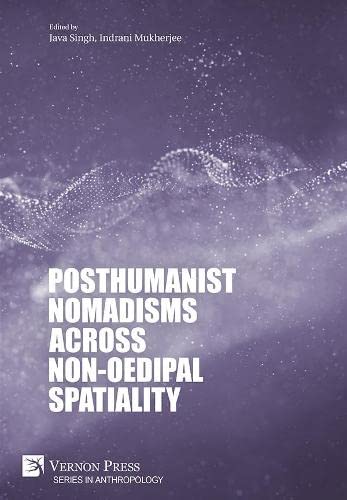

Most ebook files are in PDF format, so you can easily read them using various software such as Foxit Reader or directly on the Google Chrome browser.
Some ebook files are released by publishers in other formats such as .awz, .mobi, .epub, .fb2, etc. You may need to install specific software to read these formats on mobile/PC, such as Calibre.
Please read the tutorial at this link: https://ebookbell.com/faq
We offer FREE conversion to the popular formats you request; however, this may take some time. Therefore, right after payment, please email us, and we will try to provide the service as quickly as possible.
For some exceptional file formats or broken links (if any), please refrain from opening any disputes. Instead, email us first, and we will try to assist within a maximum of 6 hours.
EbookBell Team

0.0
0 reviewsAs an epistemological perspective, 'nomadism' is an emerging field of scholarship, offering intersectionality with eco-criticism, feminism, post-colonialism, migration studies, and translation. Much of the scholarship that uses the precepts of nomadism to read cultural texts and phenomena is scattered as separate articles in academic journals or as single chapters in books wherein the primary focus is the intersectional fields. Few book-length publications solely focus on the ramifications of nomadism; Posthumanist Nomadisms across non-Oedipal Spatiality fills that void.
The fifteen chapters in this volume explore the possibilities offered by the nomadic perspective to explore a wide range of literary and cultural texts; organized into three sections, "Nomadic Assemblages," "Non-Oedipal Cartographies", and "Space-Time Montages", that work as one to negate absorption into the interiority of sovereign territory. These sections are not an attempt at corralling the nomadic spirit into separate enclosures; instead, they are bands of warriors that operate the violence of the hunted animal, dehumanized human others, and earth others. The chapters are in constant multi-vocal conversations with narratives that camp on the turbulent weathers of global transitory spaces. They charter real or intellectual turfs of interstitial/rhizomatic nomadic epistemologies as political resistance to the exclusionary practices of a violently wired world.
This book will appeal to post-graduate students, researchers, and faculty in the departments of literature, comparative literary and cultural studies. Researchers in sociology, cultural anthropology, gender studies, and migration studies will also find the material applicable to the expanding approaches available in their fields.